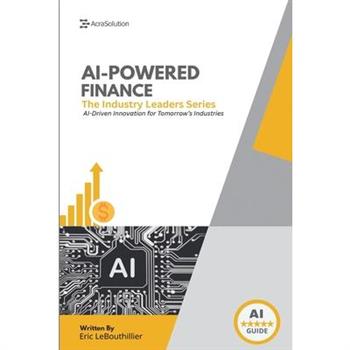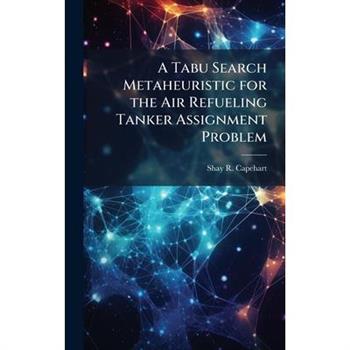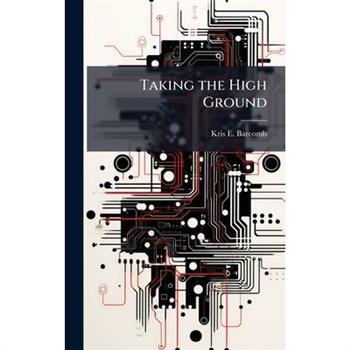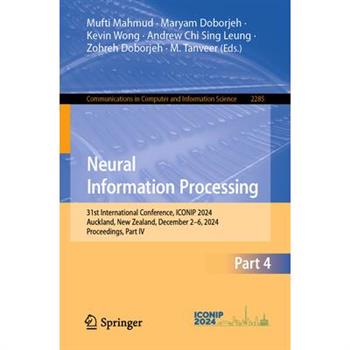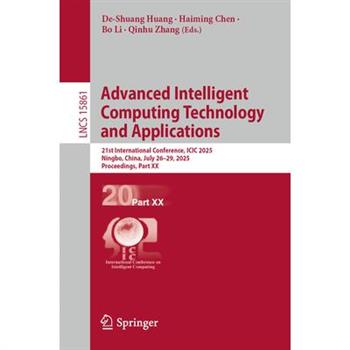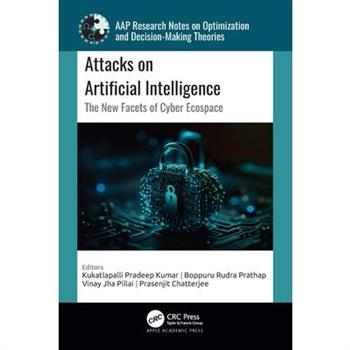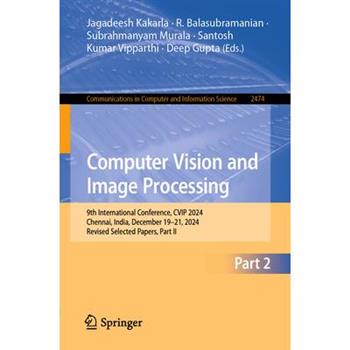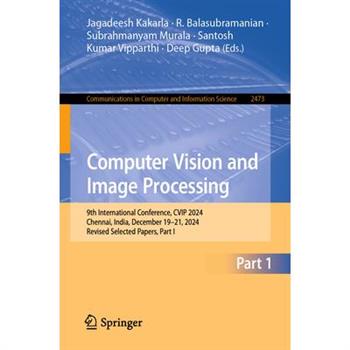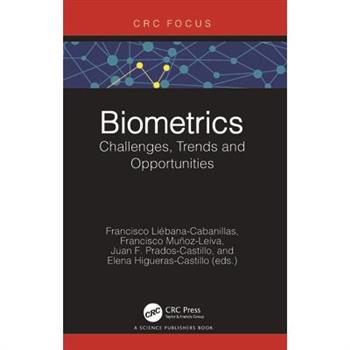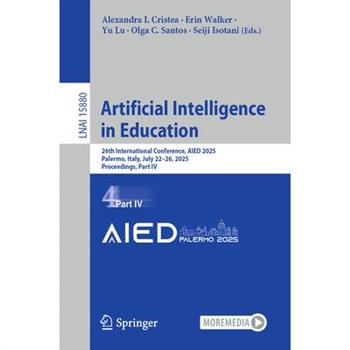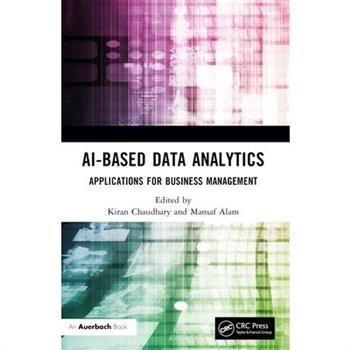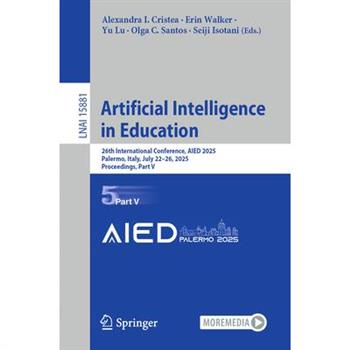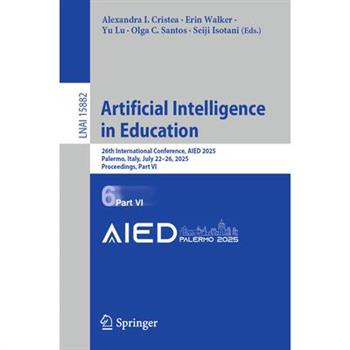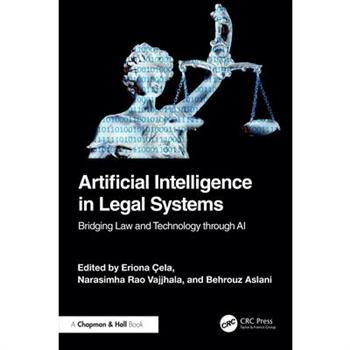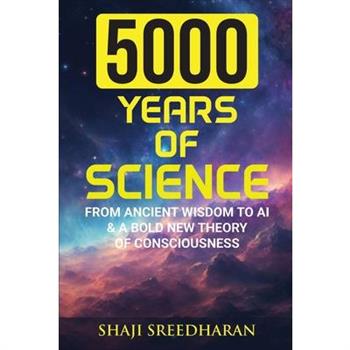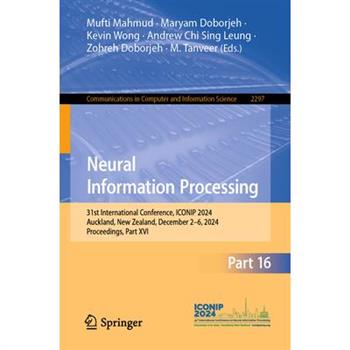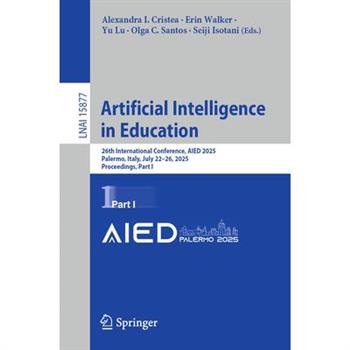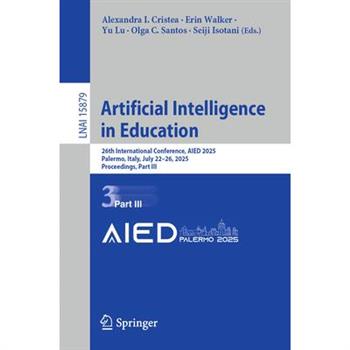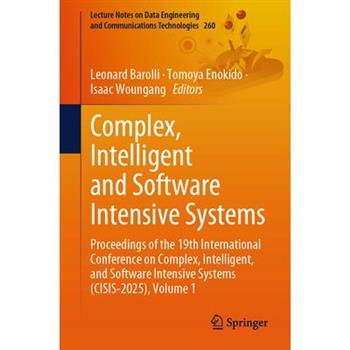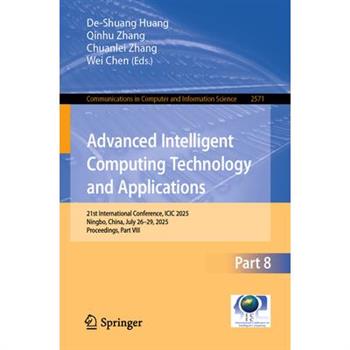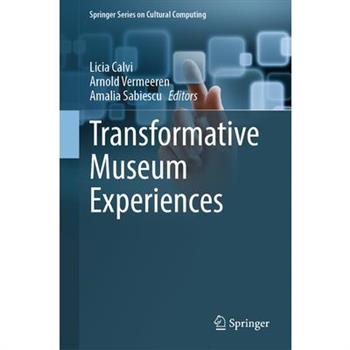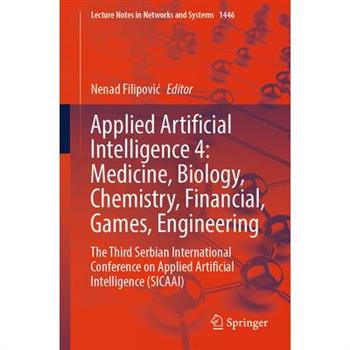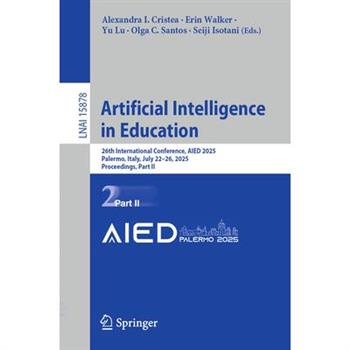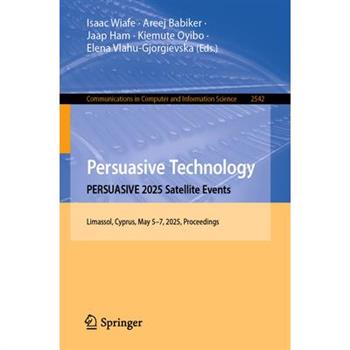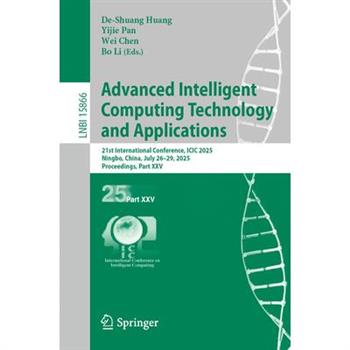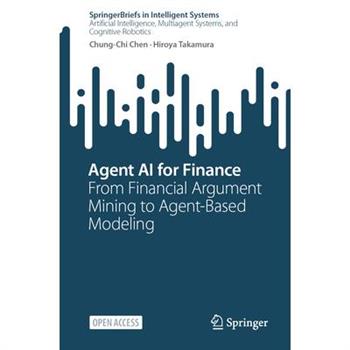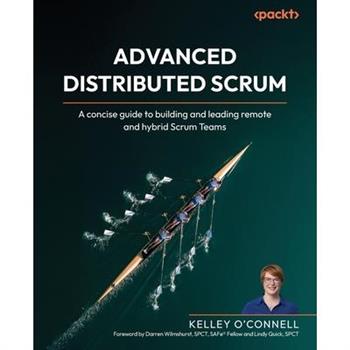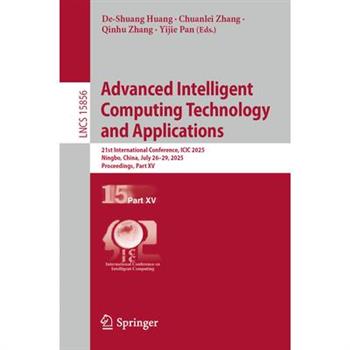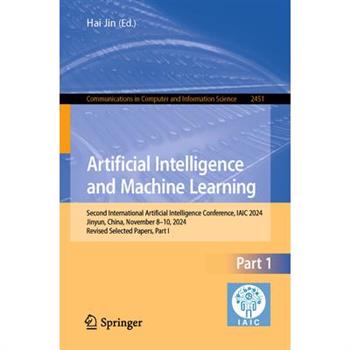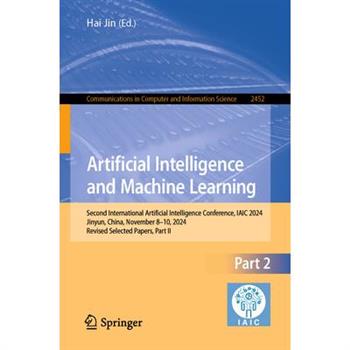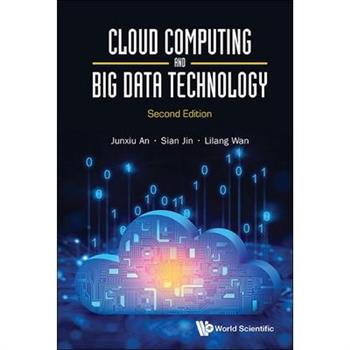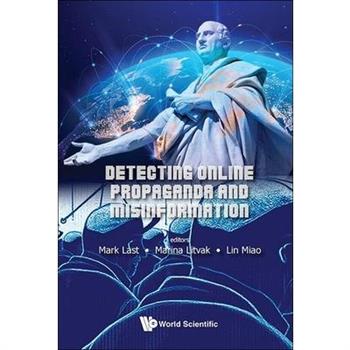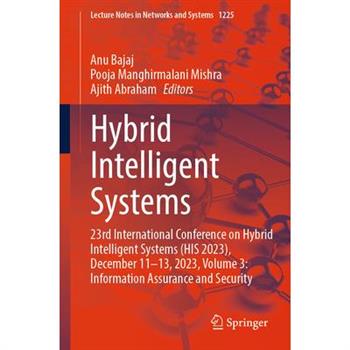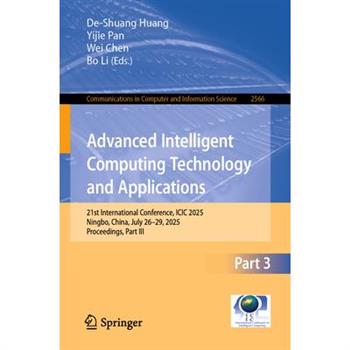AI In Finance
AI in Finance: The Future of Money, Markets, and Investment Starts HereThe financial world is evolving-and artificial intelligence (AI) is at the center of this transformation. From robo-advisors and algorithmic trading to fraud detection and credit scoring, AI in Finance is your essential guide to understanding how intelligent technologies are reshaping every corner of the financial sector.Whether you're an investor, finance professional, student, or entrepreneur, this book provides the knowledge you need to navigate and thrive in an AI-powered economy. Complex concepts are explained in clear, practical terms, so you can take full advantage of this once-in-a-generation revolution in finance.���� What You'll Learn Inside: ���� AI in Banking and Financial Institutions Learn how leading banks and credit unions are using AI to streamline operations, enhance customer service, automate loan approvals, and reduce risk. From natural language chatbots to robotic process automation (RPA), discover how AI is saving billions annually in financial services.���� Predictive Analytics and Forecasting Dive into the power of machine learning models that analyze financial data to predict market trends, customer behavior, and business outcomes. Understand how hedge funds, fintech startups, and asset managers use predictive tools to gain a competitive edge.���� Robo-Advisors and Wealth Management Explore how digital financial advisors provide personalized investment advice using real-time data. Compare platforms like Betterment, Wealthfront, and Schwab Intelligent Portfolios-and learn how AI creates diversified portfolios based on your risk profile.���� Algorithmic Trading and Quantitative Finance Discover how high-frequency trading firms use AI and deep learning to execute trades in milliseconds. Understand the impact of data-driven strategies on global markets-and how even retail investors can harness simplified tools to compete.����️ Fraud Detection and Risk Management Find out how AI is being used to detect financial fraud in real time. From transaction pattern recognition to anomaly detection, AI is improving security across payment systems, insurance claims, and identity verification.���� Credit Scoring and Underwriting Learn how AI models go beyond traditional FICO scores to assess creditworthiness using alternative data like mobile activity, income patterns, and even social media behavior. See how fintech lenders are disrupting old systems.���� AI in Personal Finance & Budgeting Apps Discover how tools like Mint, Cleo, and YNAB use AI to provide users with automated insights, savings plans, and financial coaching. Understand how smart notifications and behavior tracking improve money habits.���� Fintech Startups and Innovation Explore the new wave of fintech companies harnessing AI to solve complex financial problems-like blockchain compliance, micro-investing, decentralized finance (DeFi), and peer-to-peer lending.���� AI Ethics, Bias, and Regulation in Finance Address the concerns around transparency, algorithmic bias, and responsible AI. Learn what financial institutions must consider to maintain ethical standards and comply with emerging regulations.
A Tabu Search Metaheuristic for the Air Refueling Tanker Assignment Problem
In a joint effort between Air Mobility Command (AMC) and the Air Force Institute of Technology, we present a Tanker Assignment Problem (TAI`) Tool capable of providing tanker mission plans for deployment scenarios. Due to the complex nature of extracting a mission plan from the Combined Mating and Ranging Planning System (CMARPS), AMC requires a tool to provide similar results in a simpler and less time consuming manner. The tool developed allows AMC to input several receiver groups consisting of various aircraft types and numbers. Each receiver group contains a point of origin and destination, with the option of providing one waypoint along the path. In addition, each group has a ready to load date (RLD) and required delivery date (RDD). The user is also able to specify the locations of military tanker aircraft. The main goal of this tool is to assign the tankers to the different refueling points of the receiver groups so that all receiver groups arrive before their RDD. Secondary goals include the reuse of tankers and limiting the total flight distance for all tanker aircraft. The TAP Tool uses the heuristic technique tabu search to determine an assignment of tankers to receiver groups during a deployment.This work has been selected by scholars as being culturally important, and is part of the knowledge base of civilization as we know it. This work was reproduced from the original artifact, and remains as true to the original work as possible. Therefore, you will see the original copyright references, library stamps (as most of these works have been housed in our most important libraries around the world), and other notations in the work.This work is in the public domain in the United States of America, and possibly other nations. Within the United States, you may freely copy and distribute this work, as no entity (individual or corporate) has a copyright on the body of the work.As a reproduction of a historical artifact, this work may contain missing or blurred pages, poor pictures, errant marks, etc. Scholars believe, and we concur, that this work is important enough to be preserved, reproduced, and made generally available to the public. We appreciate your support of the preservation process, and thank you for being an important part of keeping this knowledge alive and relevant.
A Tabu Search Metaheuristic for the Air Refueling Tanker Assignment Problem
In a joint effort between Air Mobility Command (AMC) and the Air Force Institute of Technology, we present a Tanker Assignment Problem (TAI`) Tool capable of providing tanker mission plans for deployment scenarios. Due to the complex nature of extracting a mission plan from the Combined Mating and Ranging Planning System (CMARPS), AMC requires a tool to provide similar results in a simpler and less time consuming manner. The tool developed allows AMC to input several receiver groups consisting of various aircraft types and numbers. Each receiver group contains a point of origin and destination, with the option of providing one waypoint along the path. In addition, each group has a ready to load date (RLD) and required delivery date (RDD). The user is also able to specify the locations of military tanker aircraft. The main goal of this tool is to assign the tankers to the different refueling points of the receiver groups so that all receiver groups arrive before their RDD. Secondary goals include the reuse of tankers and limiting the total flight distance for all tanker aircraft. The TAP Tool uses the heuristic technique tabu search to determine an assignment of tankers to receiver groups during a deployment.This work has been selected by scholars as being culturally important, and is part of the knowledge base of civilization as we know it. This work was reproduced from the original artifact, and remains as true to the original work as possible. Therefore, you will see the original copyright references, library stamps (as most of these works have been housed in our most important libraries around the world), and other notations in the work.This work is in the public domain in the United States of America, and possibly other nations. Within the United States, you may freely copy and distribute this work, as no entity (individual or corporate) has a copyright on the body of the work.As a reproduction of a historical artifact, this work may contain missing or blurred pages, poor pictures, errant marks, etc. Scholars believe, and we concur, that this work is important enough to be preserved, reproduced, and made generally available to the public. We appreciate your support of the preservation process, and thank you for being an important part of keeping this knowledge alive and relevant.
Multiagent Systems Engineering
This thesis defines a methodology for the creation of multiagent systems, the Multiagent Systems Engineering (MaSE) methodology. The methodology is a key issue in the development of any complex system and there is currently no standard or widely used methodology in the realm of multiagent systems. MaSE to covers the entire software lifecycle, starting from an initial prose specification, and creating a set of formal design documents in a graphical style based on a formal syntax. The final product of MaSE is a diagram describing the deployment of a system of intelligent agents that communicate through structured conversations. MaSE was created with the intention of being supported an automated design tool. The tool built to support MaSE, agent Tool, is a multiagent system development tool for designing and synthesizing complex multiagent systems.This work has been selected by scholars as being culturally important, and is part of the knowledge base of civilization as we know it. This work was reproduced from the original artifact, and remains as true to the original work as possible. Therefore, you will see the original copyright references, library stamps (as most of these works have been housed in our most important libraries around the world), and other notations in the work.This work is in the public domain in the United States of America, and possibly other nations. Within the United States, you may freely copy and distribute this work, as no entity (individual or corporate) has a copyright on the body of the work.As a reproduction of a historical artifact, this work may contain missing or blurred pages, poor pictures, errant marks, etc. Scholars believe, and we concur, that this work is important enough to be preserved, reproduced, and made generally available to the public. We appreciate your support of the preservation process, and thank you for being an important part of keeping this knowledge alive and relevant.
Knowledge Base Support for Design and Synthesis of Multi-Agent Systems
Agent Tool is an AFIT-produced, AFOSR-sponsored multi-agent system (MAS) development tool intended for production of MASs that meet military requirements. This research focuses on enabling MAS design and synthesis tools like agent Tool to store, retrieve, and filter persistent, reusable, and reliable agent domain knowledge. This "enabling" is vital if such tools are expected to produce consistent, maintainable, and verifiable agent applications on short timetables. Enabling requires: 1) modeling the agent knowledge domain, 2) designing and employing a persistent knowledge base, and 3) bridging that domain model to the knowledgebase with an extensible domain interchange grammar. The achieved interchange grammar, called Multi-Agent Markup Language (MAML), is presented and shown to be capable of representing MAS design knowledge in a concise and easily parsed form that is readily stored and retrieved in the knowledge base. The selected knowledge base, called the Agent Random-Access Meta-Structure (ARAMS), is shown to support MAML and operate in a distributed environment that permits sharing of agent development knowledge between various tools and tool instances. Tests of MAML and ARAMS with agent Tool are summarized, and related future work suggested.This work has been selected by scholars as being culturally important, and is part of the knowledge base of civilization as we know it. This work was reproduced from the original artifact, and remains as true to the original work as possible. Therefore, you will see the original copyright references, library stamps (as most of these works have been housed in our most important libraries around the world), and other notations in the work.This work is in the public domain in the United States of America, and possibly other nations. Within the United States, you may freely copy and distribute this work, as no entity (individual or corporate) has a copyright on the body of the work.As a reproduction of a historical artifact, this work may contain missing or blurred pages, poor pictures, errant marks, etc. Scholars believe, and we concur, that this work is important enough to be preserved, reproduced, and made generally available to the public. We appreciate your support of the preservation process, and thank you for being an important part of keeping this knowledge alive and relevant.
Taking the High Ground
Cloud computing offers tremendous opportunities for private industry, governments, and even individuals to access massive amounts of computational resources on-demand at very low cost. Recent advancements in bandwidth availability, virtualization technologies, distributed programming paradigms, security services and general public awareness havecontributed to this new business model for employing information technology (IT) resources. IT managers face tough decisions as they attempt to balance the pros and cons of integrating commercial cloud computing into their existing IT architectures. On one hand, cloud computing provides on-demand scalability, reduces capital and operational expenses, decreases barriers to entry, and enables organizations to refocus on core competencies rather than on IT expertise.This work has been selected by scholars as being culturally important, and is part of the knowledge base of civilization as we know it. This work was reproduced from the original artifact, and remains as true to the original work as possible. Therefore, you will see the original copyright references, library stamps (as most of these works have been housed in our most important libraries around the world), and other notations in the work.This work is in the public domain in the United States of America, and possibly other nations. Within the United States, you may freely copy and distribute this work, as no entity (individual or corporate) has a copyright on the body of the work.As a reproduction of a historical artifact, this work may contain missing or blurred pages, poor pictures, errant marks, etc. Scholars believe, and we concur, that this work is important enough to be preserved, reproduced, and made generally available to the public. We appreciate your support of the preservation process, and thank you for being an important part of keeping this knowledge alive and relevant.
Kernelized Locality Sensitive Hashing for Fast Image Landmark Association
As the concept of war has evolved, navigation in urban environments where GPS may be degraded is increasingly becoming more important. Two existing solutions are vision-aided navigation and vision-based Simultaneous Localization and Mapping (SLAM). The problem, however, is that vision-based navigation techniques can require excessive amounts of memory and increased computational complexity resulting in a decrease in speed. This research focuses on techniques to improve such issues by speeding up and optimizing the data association process in vision-based SLAM. Specifically, this work studies the current methods that algorithms use to associate a current robot pose to that of one previously seen and introduce another method to the image mapping arena for comparison. The current method, kd-trees, is ecient in lower dimensions, but does not narrow the search space enough in higher dimensional datasets. In this research, Kernelized Locality-Sensitive Hashing (KLSH) is implemented to conduct the aforementioned pose associations. Results on KLSH shows that fewer image comparisons are required for location identification than that of other methods. This work can then be extended into a vision-SLAM implementation to subsequently produce a map.This work has been selected by scholars as being culturally important, and is part of the knowledge base of civilization as we know it. This work was reproduced from the original artifact, and remains as true to the original work as possible. Therefore, you will see the original copyright references, library stamps (as most of these works have been housed in our most important libraries around the world), and other notations in the work.This work is in the public domain in the United States of America, and possibly other nations. Within the United States, you may freely copy and distribute this work, as no entity (individual or corporate) has a copyright on the body of the work.As a reproduction of a historical artifact, this work may contain missing or blurred pages, poor pictures, errant marks, etc. Scholars believe, and we concur, that this work is important enough to be preserved, reproduced, and made generally available to the public. We appreciate your support of the preservation process, and thank you for being an important part of keeping this knowledge alive and relevant.
Neural Information Processing
The sixteen-volume set, CCIS 2282-2297, constitutes the refereed proceedings of the 31st International Conference on Neural Information Processing, ICONIP 2024, held in Auckland, New Zealand, in December 2024. The 472 regular papers presented in this proceedings set were carefully reviewed and selected from 1301 submissions. These papers primarily focus on the following areas: Theory and algorithms; Cognitive neurosciences; Human-centered computing; and Applications.
Advanced Intelligent Computing Technology and Applications
The 20-volume set LNCS 15842-15861, together with the 4-volume set LNAI 15862-15865 and the 4-volume set LNBI 15866-15869, constitutes the refereed proceedings of the 21st International Conference on Intelligent Computing, ICIC 2025, held in Ningbo, China, during July 26-29, 2025. The 1206 papers presented in these proceedings books were carefully reviewed and selected from 4032 submissions. They deal with emerging and challenging topics in artificial intelligence, machine learning, pattern recognition, bioinformatics, and computational biology.
Attacks on Artificial Intelligence
Examines recent developments and issues in attacks targeting AI-based systems and AI-based cyber infrastructures while also presenting research on using AI technologies to prevent attacks. Includes topics like AI in secure video surveillance systems, an AI-secured visitor management system, etc.
Computer Vision and Image Processing
The Six-volume proceedings set CCIS 2473 and 2478 constitutes the refereed proceedings of the 9th International Conference on Computer Vision and Image Processing, CVIP 2024, held in Chennai, India, during December 19-21, 2024. The 178 full papers presented were carefully reviewed and selected from 647 submissions.The papers focus on various important and emerging topics in image processing, computer vision applications, deep learning, and machine learning techniques in the domain.
Computer Vision and Image Processing
The Six-volume proceedings set LNCS 2473 and 2478 constitutes the refereed proceedings of the 9th International Conference on Computer Vision and Image Processing, CVIP 2024, held in Chennai, India, during December 19-21, 2024. The 178 full papers presented were carefully reviewed and selected from 647 submissions.The papers focus on various important and emerging topics in image processing, computer vision applications, deep learning, and machine learning techniques in the domain.
Biometrics
The book provides a comprehensive overview of biometrics, including its theoretical foundations and practical applications, and offers valuable insights into its relevance and impact on various sectors of society. It provides readers with a comprehensive view of how biometrics can shape future solutions that are secure, user focused, and technologically advanced. The first part discusses the fundamentals and applications of biometric technology. The second part discusses the challenges and future of biometric technologies.
Artificial Intelligence in Education
This six-volume set LNAI 15877-15882 constitutes the refereed proceedings of the 26th International Conference on Artificial Intelligence in Education, AIED 2025, held in Palermo, Italy, during July 22-26, 2025. The 130 full papers and 129 short papers presented in this book were carefully reviewed and selected from 711 submissions. The conference program comprises seven thematic tracks: Track 1: AIED Architectures and Tools Track 2: Machine Learning and Generative AI: Emphasising datadrivenTrack 3: Learning, Teaching, and Pedagogy Track 4: Human-Centred Design and Design-Based Research Track 5: Teaching AI Track 6: Ethics, Equity, and AIED in Society Track 7: Theoretical Aspects of AIED and AI-Based Modelling forEducation
AI-Based Data Analytics
This book covers various topics related to marketing and business analytics. It explores how organizations can increase their profits by making better decisions in a timely manner through the use of data analytics. This book is meant for students, practitioners, industry professionals, researchers, and academics working in the field of commerce and marketing, big data analytics, and organizational decision-making. Highlights of the book include: The role of Explainable AI in improving customer experiences in e-commerce Sentiment analysis of social media Data analytics in business intelligence Federated learning for business intelligence AI-based planning of business management An AI-based business model innovation in new technologies An analysis of social media marketing and online impulse buying behaviour AI-Based Data Analytics: Applications for Business Management has two primary focuses. The first is on analytics for decision-making and covers big data analytics for market intelligence, data analytics and consumer behavior, and the role of big data analytics in organizational decision-making. The book's second focus is on digital marketing and includes the prediction of marketing by consumer analytics, web analytics for digital marketing, smart retailing, and leveraging web analytics for optimizing digital marketing strategies.
Artificial Intelligence in Education
This six-volume set LNAI 15877-15882 constitutes the refereed proceedings of the 26th International Conference on Artificial Intelligence in Education, AIED 2025, held in Palermo, Italy, during July 22-26, 2025. The 130 full papers and 129 short papers presented in this book were carefully reviewed and selected from 711 submissions. The conference program comprises seven thematic tracks: Track 1: AIED Architectures and Tools Track 2: Machine Learning and Generative AI: Emphasising datadrivenTrack 3: Learning, Teaching, and Pedagogy Track 4: Human-Centred Design and Design-Based Research Track 5: Teaching AI Track 6: Ethics, Equity, and AIED in Society Track 7: Theoretical Aspects of AIED and AI-Based Modelling forEducation
Artificial Intelligence in Education
This six-volume set LNAI 15877-15882 constitutes the refereed proceedings of the 26th International Conference on Artificial Intelligence in Education, AIED 2025, held in Palermo, Italy, during July 22-26, 2025. The 130 full papers and 129 short papers presented in this book were carefully reviewed and selected from 711 submissions. The conference program comprises seven thematic tracks: Track 1: AIED Architectures and Tools Track 2: Machine Learning and Generative AI: Emphasising datadrivenTrack 3: Learning, Teaching, and Pedagogy Track 4: Human-Centred Design and Design-Based Research Track 5: Teaching AI Track 6: Ethics, Equity, and AIED in Society Track 7: Theoretical Aspects of AIED and AI-Based Modelling forEducation
Artificial Intelligence in Legal Systems
This book presents a comprehensive analysis of the transformative impact of artificial intelligence (AI) across legal frameworks within the European Union and beyond. It is a key resource for postgraduate students, researchers, and professionals in legal fields seeking to better understand the benefits and risks of AI.
Designing Virtual Worlds Volume I
Designing Virtual Worlds stands as the most comprehensive examination of virtual-world design ever written. This seminal work is a tour de force, remarkable for its intellectual breadth, encompassing the literary, economic, sociological, psychological, physical, technological, and ethical foundations of virtual worlds.
The Dharma of AI
You just glanced at your phone, didn't you? That's exactly how algorithms draw us in. We're living suspended between two worlds: one where AI quietly decides who gets hired, what news we see, and which voices we hear-and another where millennia of human wisdom sit waiting to guide us.After forty years building AI systems and twenty years studying dharma in Indian ashrams, author Alok R. Chaturvedi learned something crucial: our digital future desperately needs our philosophical past. This isn't another robot apocalypse book-it is an invitation to see technology through ancient wisdom made urgently relevant as artificial general intelligence approaches. Through deeply human stories-a coder discovering her biases embedded in "neutral" algorithms, a parent watching their child disappear into endless scrolling-we explore how technology impacts us across three dimensions: Daihik (personal), Daivik (universal), and Bhautik (material). We also examine how technology carries the Three Gunas: Sattvik (clarity), Rajasik (restlessness), and Tamsik (numbness). Additionally, The Dharma of AI introduces the Five Guardians, which are timeless ethical principles: Ahimsa (do no harm), Satya (seek truth), Asteya (take only what's given), Brahmacharya (consume mindfully), and Dharma (act righteously). Whether building technology, raising children, or seeking authentic digital living, this book offers profound insight and practical wisdom for our most urgent conversation.
Cloud Computing using Salesforce
Salesforce, as the leading cloud-based CRM platform, empowers businesses to manage customer relationships and build custom applications. This book serves as your comprehensive guide to mastering this technology, from foundational cloud concepts to advanced development and administration, enabling you to leverage its full potential.This book provides a structured journey, starting with cloud computing fundamentals and a thorough introduction to Salesforce, including its Lightning Platform architecture and benefits. This new edition brings in-depth coverage of Lightning Web Components (LWC), equipping you with the skills to build modern, high-performance user interfaces, aligning with the latest Salesforce development standards. Lastly, you will learn how to deploy and debug the app, with enhanced coverage on advanced Apex handlers for robust integrations and asynchronous processing. The book focuses on how to design an app. You will then learn how to use the Salesforce data process and security architecture in the app design and understand how to use force.com to customize the UI and automate the process. Lastly, you will learn practical debugging and deployment techniques.Upon completing this book, you will be highly competent in declarative and programmatic aspects of Salesforce, ready to confidently build, customize, and manage solutions, and prepared for official Salesforce Administrator, Platform App Builder, and Platform Developer I certifications.WHAT YOU WILL LEARN● Get an overview of Salesforce.● In this edition, learn more about the Lightning Experience unit.● Understand the design and data process.● Learn how to develop reports and dashboards in Salesforce.● Automate business process using Salesforce tools. ● ⁠Get familiar with the programming in Apex language.WHO THIS BOOK IS FORThis book is ideal for computer science students and Salesforce Admins looking to deepen their platform knowledge, especially in development. It is also perfect for professionals aiming to learn LWC and Salesforce Administrator, Platform App Builder or Platform Developer I certifications, assuming a basic understanding of computer concepts.
5000 Years of Science
What is science, really-and where is it taking us?In this sweeping journey across five millennia, 5000 Years of Science traces the rise of human understanding, from ancient Mesopotamian star charts to cutting-edge theories of artificial intelligence and quantum consciousness. This is not just a history of inventions and discoveries-it's a bold reinterpretation of science as the evolving expression of our deepest survival instincts, cognitive tools, and existential questions.Explore how early civilisations laid the mathematical and astronomical foundations of science. Witness the intellectual explosions of the Scientific Renaissance and Enlightenment. Follow the dramatic revolutions of chemistry, physics, biology, and computing. And then step into the future-with explorations of AI, neuroscience, quantum biology, and the search for a unified theory of consciousness.A Journey Through Human Discovery - and a Radical New Idea That May Change Everything We Know About the MindWhat if consciousness isn't a mystery... but an evolved tool for survival?In this bold and sweeping book, 5000 Years of Science traces the story of human discovery-from the fires of early civilisation to the quantum codes of artificial intelligence. With every chapter, the reader journeys through astronomy, biology, physics, and psychology-culminating in a groundbreaking theory that redefines what it means to be conscious.Introducing Affective Survival Theory (AST)-a new scientific framework that argues feeling is not a byproduct of thought, but the engine of survival. Pain, pleasure, fear, hunger, love: these are not abstract states, but evolution's way of tagging experience with meaning. From the reflex of a single cell to the awe of cosmic wonder, AST reveals how consciousness evolved not to think first-but to feel and adapt.���� Inside This Book: The 5000-year timeline of science, from ancient astronomy to AIThe rise of artificial intelligence and the limits of machine mindsWhy consciousness evolved through emotionally charged survivalHow AST compares to other leading theories (IIT, GWT, Orch OR, etc.)A reframe of the hard problem of consciousness into the hard advantage of feelingThe emotional roots of memory, imagination, reasoning, and transcendenceWhether you're a science lover, philosopher, futurist, or simply curious about the nature of the mind, 5000 Years of Science will challenge your assumptions, ignite your curiosity, and change how you see yourself-and consciousness itself.This is more than a book. It's the next chapter in the human story.
Neural Information Processing
The sixteen-volume set, CCIS 2282-2297, constitutes the refereed proceedings of the 31st International Conference on Neural Information Processing, ICONIP 2024, held in Auckland, New Zealand, in December 2024. The 472 regular papers presented in this proceedings set were carefully reviewed and selected from 1301 submissions. These papers primarily focus on the following areas: Theory and algorithms; Cognitive neurosciences; Human-centered computing; and Applications.
Artificial Intelligence in Education
This six-volume set LNAI 15877-15882 constitutes the refereed proceedings of the 26th International Conference on Artificial Intelligence in Education, AIED 2025, held in Palermo, Italy, during July 22-26, 2025. The 130 full papers and 129 short papers presented in this book were carefully reviewed and selected from 711 submissions. The conference program comprises seven thematic tracks: Track 1: AIED Architectures and Tools Track 2: Machine Learning and Generative AI: Emphasising datadrivenTrack 3: Learning, Teaching, and Pedagogy Track 4: Human-Centred Design and Design-Based Research Track 5: Teaching AI Track 6: Ethics, Equity, and AIED in Society Track 7: Theoretical Aspects of AIED and AI-Based Modelling forEducation
Artificial Intelligence in Education
This six-volume set LNAI 15877-15882 constitutes the refereed proceedings of the 26th International Conference on Artificial Intelligence in Education, AIED 2025, held in Palermo, Italy, during July 22-26, 2025. The 130 full papers and 129 short papers presented in this book were carefully reviewed and selected from 711 submissions. The conference program comprises seven thematic tracks: Track 1: AIED Architectures and Tools Track 2: Machine Learning and Generative AI: Emphasising datadrivenTrack 3: Learning, Teaching, and Pedagogy Track 4: Human-Centred Design and Design-Based Research Track 5: Teaching AI Track 6: Ethics, Equity, and AIED in Society Track 7: Theoretical Aspects of AIED and AI-Based Modelling forEducation
Advanced Intelligent Computing Technology and Applications
The 12-volume set CCIS 2564-2575, together with the 28-volume set LNCS/LNAI/LNBI 15842-15869, constitutes the refereed proceedings of the 21st International Conference on Intelligent Computing, ICIC 2025, held in Ningbo, China, during July 26-29, 2025. The 523 papers presented in these proceedings books were carefully reviewed and selected from 4032 submissions. This year, the conference concentrated mainly on the theories and methodologies as well as the emerging applications of intelligent computing. Its aim was to unify the picture of contemporary intelligent computing techniques as an integral concept that highlights the trends in advanced computational intelligence and bridges theoretical research with applications. Therefore, the theme for this conference was "Advanced Intelligent Computing Technology and Applications".
Transformative Museum Experiences
Following on the volume Museum Experience Design (2018), this book acknowledges the changing role of museums in society with a focus on designing experiences as vehicles for transformation. We look at transformation through a systemic perspective, anchored in the experience that museums offer to visitors. One facet of our exploration regards the museum experience itself as an instrument for change. At this level we conceptualise what we mean by a transformative experience and look at design approaches specifically geared towards inducing transformation. We then turn attention towards the way recent changes in the socio-political and cultural context reverberated in structural and functional changes inside the museum and connected institutions and communities, with shifting museum identities and new forms of cooperation emerging. Finally, we zoom in on the role of technology in the making of transformative museum experiences, looking at opportunities and affordances but also calling for an ethical approach to integration of technology in museum practice.
Applied Artificial Intelligence 4: Medicine, Biology, Chemistry, Financial, Games, Engineering
The book covers the state-of-the-art research knowledge and results on the innovative theories, methodology and applications of artificial intelligence and its sub-domain like deep learning in different areas such as medicine, economy, education, law, smart city, government, industry etc. Moreover, the book aims to provide a platform for researchers and practitioners for both academia and industry to share the information about cutting-edge developments in the field of artificial intelligence. The chapters in this book integrated approach toward global exchange of information on technological advances, scientific innovations and the effectiveness of various regulatory programs toward AI application in medicine, biology, chemistry, financial, games, law and engineering. Real examples from academia and industry give beyond state of the art for application of AI in different areas. These chapters are extended papers from the Third Serbian International Conference on Applied Artificial Intelligence (SICAAI), which was held in Kragujevac, Serbia, on May 23-24, 2024.
AI on the Frontlines
The emergence of Artificial Intelligence (AI) has drastically altered the conditions of warfare. AI now plays an integral role in every facet of a nation-state's military/surveillance structure, from cybersecurity to espionage to covert operations. AI technologies are reshaping the science of cyber warfare. A single slip could mean dire consequences with the new world order where AI technologies have become mainstream not just for nation states but organisations as well. For organisation and state-sponsored alike, the associated risk grows ever higher against stakes that have outpaced sophistication which can be claimed to be unprecedented. This book outlines the new standards where deep learning, automated reasoning, and advanced algorithms have created new frontiers on offence and defence in digital warfare. A single error in enterprise security could lead to the downfall of a business. Exceeding malware threats and recovering inside jobs have become trivially easy now AI powered programmes have taken the wheel. AI systems can execute actions at lightning speeds allowing business alongside governments to carry out covert operations without breaking a sweat. A powerful pioneer such as AI comes with risks that do not only end at the sidelines. Offensively, AI can now be applied to autonomously run social engineering schemes through swiftly mobilisable global bots that rapidly span across borders. These nodes come armed with advanced features like adaptive maneuvers and evasion protocols, allowing them to adapt the information they feed to infiltrator malware all while dodging identifiers and making undetectable changes in real time. In a world superseded by advanced technologies, one does not simply remain undetected.By using practical examples and future-focused studies, the book explores how AI can act as both a protective shield and a sword. Most importantly, the book does not act as a mere technical guide. It analyses the social, legal, and political consequences of AI cyber-power strategies. What constitutes permissible boundaries of electronic warfare? How do global treaties cope with autonomous strategy algorithms for attacking? In an AI-enabled warfare, where does human accountability start and stop? It is intended for practitioners in security, IT executives, scholars, and other concerned citizens who wish to engage with the future of digital technology. This book untangles the complicated theories and concepts of modern cyber defence and offence, equipping readers to deal with these challenges in the future. If you are looking for protective strategies for your organisation, or want to understand emerging cyber threats, Cyber Defence and Offensive AI Strategies offers an authoritative yet balanced take on the global intelligence competition that is urgently reshaping the world's digital infrastructure.This text will be highly useful for cybersecurity practitioners, IT managers, penetration testers, and threat intelligence analysts looking to familiarise themselves with the new dimensions of AI technology in both defence and offence of cyber domains. Security architects and CISOs will find relevant actionable strategies on use of AI in their defensive strategies, while educators, students, and researchers in computer science and security studies will find a thorough contemporary reference. Besides, policymakers, lawyers, and ethical commentators concerned with the social consequences of autonomous cyber operations would be interested in the book's discussions on regulation and the limits of warfare in cyberspace. It doesn't matter whether you are a seasoned authority, an emerging professional, or simply someone who cares about the evolution of digital security. This book is a must-read for you.
Artificial Intelligence in Education
This six-volume set LNAI 15877-15882 constitutes the refereed proceedings of the 26th International Conference on Artificial Intelligence in Education, AIED 2025, held in Palermo, Italy, during July 22-26, 2025. The 130 full papers and 129 short papers presented in this book were carefully reviewed and selected from 711 submissions. The conference program comprises seven thematic tracks: Track 1: AIED Architectures and Tools Track 2: Machine Learning and Generative AI: Emphasising datadrivenTrack 3: Learning, Teaching, and Pedagogy Track 4: Human-Centred Design and Design-Based Research Track 5: Teaching AI Track 6: Ethics, Equity, and AIED in Society Track 7: Theoretical Aspects of AIED and AI-Based Modelling forEducation
The fanatics
Step into a world where humor meets humanity in "The Fanatics: A Comedy in Three Acts," a captivating play that has been out of print for decades and is now lovingly republished by Alpha Editions. This restored edition not only revives a classic but transforms it into a collector s item and a cultural treasure for today s and future generations. At the heart of this engaging narrative lies a satirical exploration of obsession and fanaticism, delivered through witty dialogue and a character-driven storyline that keeps audiences laughing and reflecting. As you follow the eccentric characters on their comedic journey, you'll discover a vibrant tapestry of modern comedy that resonates with the timeless struggles of the human spirit. "The Fanatics" is more than just a play; it s a celebration of theatrical comedy that invites both casual readers and classic literature collectors to immerse themselves in its rich, humorous landscape. With its unique blend of satire and engaging dialogue, this work stands as a testament to the enduring power of laughter in literature. Don t miss your chance to own this remarkable piece of theatrical history. Perfect for comedy enthusiasts and those who appreciate the art of stage performance, "The Fanatics" is a must-have addition to any bookshelf. Embrace the joy of classic literature with this restored gem, and let its humor inspire you anew!
Advanced Intelligent Computing Technology and Applications
The 20-volume set LNCS 15842-15861, together with the 4-volume set LNAI 15862-15865 and the 4-volume set LNBI 15866-15869, constitutes the refereed proceedings of the 21st International Conference on Intelligent Computing, ICIC 2025, held in Ningbo, China, during July 26-29, 2025. The 1206 papers presented in these proceedings books were carefully reviewed and selected from 4032 submissions. They deal with emerging and challenging topics in artificial intelligence, machine learning, pattern recognition, bioinformatics, and computational biology.
Azure AI-102 Certification Essentials
Go beyond AI-102 certification by mastering the foundations of Azure AI concepts and services-reinforced through practical labs and real-world examples.Key Features: - Solidify your understanding with targeted questions at the end of each chapter- Assess your knowledge of key concepts with over 45 exam-style questions, complete with detailed explanations- Get hands-on experience with GitHub projects, along with ongoing support from the author on GitHub- Purchase of the print or Kindle book includes a free PDF eBookBook Description: Written by a seasoned solutions architect and Microsoft AI professional with over 25 years of IT experience, Azure AI-102 Certification Essentials will help you gain the skills and knowledge needed to confidently pass the Azure AI-102 certification exam and advance your career. This comprehensive guide covers all of the exam objectives, from designing AI solutions to integrating AI models into Azure services. By combining theoretical concepts with visual examples, hands-on exercises, and real-world use cases, the chapters teach you how to effectively apply your new-found knowledge.The book emphasizes responsible AI practices, addressing fairness, reliability, privacy, and security, while guiding you through testing AI models with diverse data and navigating legal considerations. Featuring the latest Azure AI tools and technologies, each chapter concludes with hands-on exercises to reinforce your learning, culminating in Chapter 11's comprehensive set of 45 mock questions that simulate the actual exam and help you assess your exam readiness.By the end of this book, you'll be able to confidently design, implement, and integrate AI solutions on Azure, while achieving this highly sought-after certification.What You Will Learn: - Learn core concepts relating to AI, LLMs, NLP, and generative AI- Build and deploy with Azure AI Foundry, CI/CD, and containers- Manage and secure Azure AI services with built-in tools- Apply responsible AI using Azure AI Content Safety- Perform OCR and analysis with Azure AI Vision- Build apps with the Azure AI Language and Speech services- Explore knowledge mining with Azure AI Search and Content Understanding- Implement RAG and fine-tuning with Azure OpenAI- Build agents using Azure AI Foundry Agent Service and Semantic KernelWho this book is for: If you're preparing for the Azure AI-102 certification exam, this book is for you. Developers, engineers, and career transitioners moving from traditional software development to AI-focused roles can use this guide to deepen their understanding of AI within the Azure ecosystem. This book is also beneficial for students and educators looking to apply AI/ML concepts using Azure. No prior experience in AI/ML is required as this book provides comprehensive coverage of exam topics with detailed explanations, practical examples, and hands-on exercises to build your confidence and expertise.Table of Contents- Understanding AI, ML, and Azure's AI Services- Getting Started with Azure AI: Studio, Pipelines, and Containerization- Managing, Monitoring, and Securing Azure AI Services- Implementing Content Moderation Solutions- Exploring Azure AI Vision Solutions- Implementing Natural Language Processing Solutions- Implementing Knowledge Mining, Document Intelligence, and Content Understanding- Working on Generative AI Solutions- Implementing Agentic Solutions with Azure AI Agent Service- Practical AI Implementation: Industry Use Cases, Technical Patterns, and Hands-On Projects- Preparing for the AI-102: Azure AI Engineer Associate Certification Exam
Agent AI for Finance
This open access book provides an overview of the current state of financial argument mining and financial text generation, and presents the authors' thoughts on the blueprint for NLP in finance in the agent AI era. Financial documents contain numerous causal inferences and subjective opinions. In a previous book, "From Opinion Mining to Financial Argument Mining" (Springer, 2021), the first author discussed understanding financial documents in a fine-grained manner, particularly those containing opinions. The book highlighted several future directions, such as financial argument mining, multimodal opinion understanding, and analysis generation, and anticipated a lengthy journey for these topics. However, since 2022, ChatGPT and large language models (LLMs) have shown promising advancements, motivating the authors to write this second book on the topic of financial Natural Language Processing (NLP). Agent-based AI systems have been widely discussed since the advent of LLMs. This book aims to equip researchers and practitioners with the latest methodologies, concepts, and frameworks for developing, deploying, and evaluating AI agents with capabilities in multimodal understanding, decision-making, and interaction. It places a special emphasis on human-centered decision-making and multi-agent cooperation in financial applications. The book surveys the current landscape and discuss future research and development directions. Targeting a wide audience, from students to seasoned researchers in AI and finance, this book offers an overview of recent trends in Agent AI for finance. It provides a foundation for students to understand the field and design their research direction, while inviting experienced researchers to engage in discussions on open research questions informed by pilot experimental results. Although this book focuses on financial applications, the discussed concepts and methods can also be applied to other real-world applications by integrating domain-specific characteristics. The authors look forward to seeing new findings and more novel extensions based on the proposed ideas.
AI Needs You
A humanist manifesto for the age of AI Artificial intelligence may be the most transformative technology of our time. As AI's power grows, so does the need to figure out what--and who--this technology is really for. AI Needs You argues that it is critical for society to take the lead in answering this urgent question and ensuring that AI fulfills its promise. Verity Harding draws inspiring lessons from the histories of three twentieth-century tech revolutions--the space race, in vitro fertilization, and the internet--to empower each of us to join the conversation about AI and its possible futures. Sharing her perspective as a leading insider in technology and politics, she rejects the dominant narrative, which often likens AI's advent to that of the atomic bomb. History points the way to an achievable future in which democratically determined values guide AI to be peaceful in its intent; to embrace limitations; to serve purpose, not profit; and to be firmly rooted in societal trust. Now with a new foreword by the author, AI Needs You gives us hope that we, the people, can imbue AI with a deep intentionality that reflects our best values, ideals, and interests, and that serves the public good. AI will permeate our lives in unforeseeable ways, but it is clear that the shape of AI's future--and of our own--cannot be left only to those building it. It is up to us to guide this technology away from our worst fears and toward a future that we can trust and believe in.
Advanced Distributed Scrum
Master distributed Scrum with real-world strategies and tools such as Slack, Trello, and CI/CD platforms to lead, collaborate, and deliver high-performing Agile projects, no matter where your team is locatedKey Features: - Help your team succeed globally while staying grounded in Agile Values and the 2020 Scrum Guide- Bridge async and sync work to increase alignment and team accountability- Apply real-world strategies for leading high-performing distributed teams- Purchase of the print or Kindle book includes a free PDF eBookBook Description: The COVID-19 pandemic altered the way teams work, turning remote work into a common practice for Agile teams that were originally founded to be co-located, leaving teams to grapple with remote and hybrid setups. The Agile mindset, however, remains the standard for effective teamwork, and this book integrates distributed work into your Agile and Scrum Values. Advanced Distributed Scrum will guide you in harnessing the talents of global team members and overcoming the challenges of working across geographies.Renowned Agile coach and educator Kelley O'Connell distills 25+ years of experience into this concise guide. The book begins by establishing the foundational principles of distributed Scrum, highlighting the unique roles and responsibilities within hybrid and remote environments. You'll gain insights into the challenges faced by distributed Agile teams and explore how to cultivate a strong remote team culture, improve communication, and effectively manage conflicts in a virtual space. Finally, you'll put remote Scrum practices into action to maximize the outcomes you're aiming for.By the end of this book, you'll be equipped to lead and nurture high-performing distributed teams, facilitate remote ceremonies, implement remote-friendly CI/CD pipelines, and create team norms that drive engagement.What You Will Learn: - Define and align remote roles for seamless collaboration- Set up tools, workspaces, and team agreements for success- Recruit, onboard, and integrate remote team members- Build a strong team culture and resolve conflicts remotely- Facilitate remote Scrum events across time zones- Implement CI/CD pipelines in distributed environments- Ensure security and compliance in remote Scrum setupsWho this book is for: This book is for Scrum Masters, Agile practitioners, coaches, product owners, and team leads who want to master remote and hybrid collaboration and build high-performing distributed Scrum teams. Whether you're experienced or new to leading distributed teams, this practical guide offers tools to enhance team effectiveness and continuous collaboration. A foundational understanding of Agile principles, the Agile mindset, and core frameworks is recommended to get the most value from this book.Table of Contents- Introduction to Agile and Scrum- Principles of Distributed Scrum- Roles and Responsibilities in a Distributed Scrum Team- Setting Up for Remote Scrum Success- Recruiting and Forming a Distributed Scrum Team- Cultivating a Strong Remote Culture- Effective Communication and Working Agreements- Collaboration and Tools and Software- Collaboration Tools and Software- Remote Pair Programming and Code Reviews- Continuous Integration and Continuous Deployment (CI/CD)- Security and Compliance in Remote Work- Remote Sprint Planning- Conducting a Distributed Daily Scrum- Sprint Execution and Monitoring- Sprint Review and Retrospective
Advanced Intelligent Computing Technology and Applications
This 20-volume set LNCS 15842-15861 constitutes - in conjunction with the 4-volume set LNAI 15862-15865 and the 4-volume set LNBI 15866-15869 - the refereed proceedings of the 21st International Conference on Intelligent Computing, ICIC 2025, held in Ningbo, China, during July 26-29, 2025. The total of 1206 regular papers were carefully reviewed and selected from 4032 submissions. This year, the conference concentrated mainly on the theories and methodologies as well as the emerging applications of intelligent computing. Its aim was to unify the picture of contemporary intelligent computing techniques as an integral concept that highlights the trends in advanced computational intelligence and bridges theoretical research with applications. Therefore, the theme for this conference was "Advanced Intelligent Computing Technology and Applications".
Medical Image Understanding and Analysis
The three-volume set LNCS 15916,15917 & 15918 constitutes the refereed proceedings of the 29th Annual Conference on Medical Image Understanding and Analysis, MIUA 2025, held in Leeds, UK, during July 15-17, 2025. The 67 revised full papers presented in these proceedings were carefully reviewed and selected from 99 submissions. The papers are organized in the following topical sections: Part I: Frontiers in Computational Pathology; and Image Synthesis and Generative Artificial Intelligence. Part II: Image-guided Diagnosis; and Image-guided Intervention. Part III: Medical Image Segmentation; and Retinal and Vascular Image Analysis.
Artificial Intelligence and Machine Learning
This CCIS volume constitutes the refereed proceedings of Second International Artificial Intelligence Conference on Artificial Intelligence and Machine Learning, IAIC 2024, held in Jinyun, China, November 2024. The 38 full papers presented were carefully reviewed and selected from 100 submissions.They were organized in following topical sections as follows: Part I: Artificial Intelligence in Real-World Applications.Part II: Artificial Intelligence in Network and Security systems.
Cloud Computing & Big Data Tech (2nd Ed)
This book comprehensively introduces the basic knowledge and main technologies of cloud computing and big data. It covers cloud computing, big data technology, virtualization technology, data centers, parallel computing and clustering technology, cloud storage technology, OpenStack, Hadoop, Spark, Storm, and cloud computing simulation.With a focus on practicality, this volume is enriched with experiments and closely integrates theory with practice, enabling readers to systematically and comprehensively understand cloud computing and big data technologies.This useful reference textbook benefits professionals, academics, researchers, graduate and undergraduate students in databases/information sciences.
Detecting Online Propaganda and Misinformation
This unique compendium provides a comprehensive overview of the state-of-the-art methods in the extremely 'hot' area of online propaganda detection and monitoring. It discusses the difficulties of developing automated methods and systems for online propaganda and misinformation detection, along with the potential contributions of machine learning techniques.The presented methods are built upon the latest AI and Natural Language Processing technologies. Case studies refer to recent events such as the COVID-19 pandemic and the Russian-Ukrainian military conflict.This useful reference text benefits academics, researchers, professionals and graduate students in AI, NLP, machine learning and information sciences.
Advanced Intelligent Computing Technology and Applications
The 12-volume set CCIS 2564-2575, together with the 28-volume set LNCS/LNAI/LNBI 15842-15869, constitutes the refereed proceedings of the 21st International Conference on Intelligent Computing, ICIC 2025, held in Ningbo, China, during July 26-29, 2025. The 523 papers presented in these proceedings books were carefully reviewed and selected from 4032 submissions. This year, the conference concentrated mainly on the theories and methodologies as well as the emerging applications of intelligent computing. Its aim was to unify the picture of contemporary intelligent computing techniques as an integral concept that highlights the trends in advanced computational intelligence and bridges theoretical research with applications. Therefore, the theme for this conference was "Advanced Intelligent Computing Technology and Applications".




